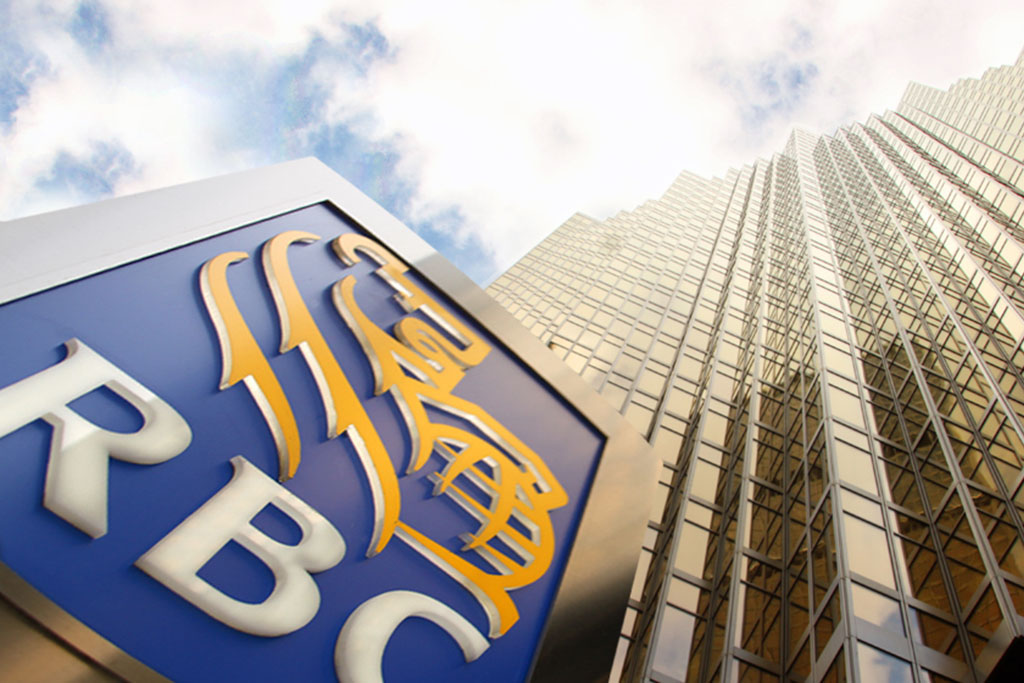Photo: RBCThe biggest Canadian bank, Royal Bank of Canada (RBC), might just possibly launch its own cryptocurrency trading platform. Media sources familiar with the situation said that RBC, that has more than 5 billion in total assets, has applied for four patents in Canada and the U.S. Those patents, according to the sources are showing the ways of how it could integrate cryptocurrencies into its operations.As per the patent: “To individual users, managing cryptographic keys and transacting with different cryptographic assets can be a challenge. In some situations, cryptographic asset transactions may take time to be confirmed, and/or may not be compatible or supported by merchant systems or point-of-sale devices.”The spokesperson for the bank Jean Francois Thibault explained that the
Topics:
Teuta Franjkovic considers the following as important: Banks, Blockchain News, british columbia securities commission, Companies, Cryptocurrency News, Einstein Exchange, ey, gerald cotten, grant thornton llp, News, quadrigacx, rbc, Royal Bank of Canada, Story of the Day, Trading
This could be interesting, too:
Bitcoin Schweiz News writes Meme Coins frühzeitig entdecken: So gelingt der Einstieg vor dem Hype
Bitcoin Schweiz News writes Bitpanda vs. Binance: Welche Bitcoin-App ist die beste für die Schweiz?
Bilal Hassan writes Morocco Cracks Down on Crypto Property Deals
Bilal Hassan writes Crypto Becomes a U.S. ‘Weapon,’ Says CryptoQuant CEO

Photo: RBC
The biggest Canadian bank, Royal Bank of Canada (RBC), might just possibly launch its own cryptocurrency trading platform. Media sources familiar with the situation said that RBC, that has more than $965 billion in total assets, has applied for four patents in Canada and the U.S. Those patents, according to the sources are showing the ways of how it could integrate cryptocurrencies into its operations.
As per the patent: “To individual users, managing cryptographic keys and transacting with different cryptographic assets can be a challenge. In some situations, cryptographic asset transactions may take time to be confirmed, and/or may not be compatible or supported by merchant systems or point-of-sale devices.”
The spokesperson for the bank Jean Francois Thibault explained that the bank “like many other organizations, files patent applications to ensure proprietary ideas and concepts are protected.” Be it as it may, he declined to further comment on the platform launch.
The bank could also have an offer for its customers’ cryptocurrency accounts. As far as it is known RBC published at least 27 blockchain-related patents during the last three years. That includes credit scores, vehicle records, digital rewards and loan offerings.
There are currently a few cryptocurrency exchanges in Canada. Last week the British Columbia Securities Commission (BCSC) announced it had filed to take control of Einstein Exchange after the platform said on October 31 that it is closing its operations in the period of the next 60 to 90 days.
Einstein became pretty unpopular after it became obvious that it cannot bring back $12.4 million ($16.3 million CAD) to its customers.
The Supreme Court of British Columbia approved the BCSC’s order and named the accounting firm Grant Thornton as a provisional receiver that will take control of the Vancouver-based exchange’s assets. The Court also authorized Grant Thornton to take possession of all of Einstein’s properties and assets. A court order also had nominated Grant Thornton to compulsorily enter any of Einstein’s business if necessary.
The company then entered and secured all the premises of Einstein Exchange on November 1.
As per BCSC, the commission got plenty of protests from customers who couldn’t access their assets on the Exchange. A lawyer who represents the platform tried to explain to the customers the platform will shut down in the coming months because it hasn’t been successful in making a profit.
This is the second time in the year a Canadian crypto exchange has folded. Let’s not forget that earlier this year, we had a case of QuadrigaCX, the troubled cryptocurrency which collapsed taking approximately $134 million of users’ funds with it.
Quadriga’s founder and CEO, Gerald Cotten, since then died of Crohn’s disease and he was actually the only one who had control of the exchange at the time of his death.
In the Quadriga case, Big Four auditor EY is now acting as the bankruptcy trustee for the exchange’s customers. The company has since then recovered around $35 million from third-party payment processors and in assets from Cotten’s property. EY is now trying to regain almost $200 million for more than 115,000 customers.
